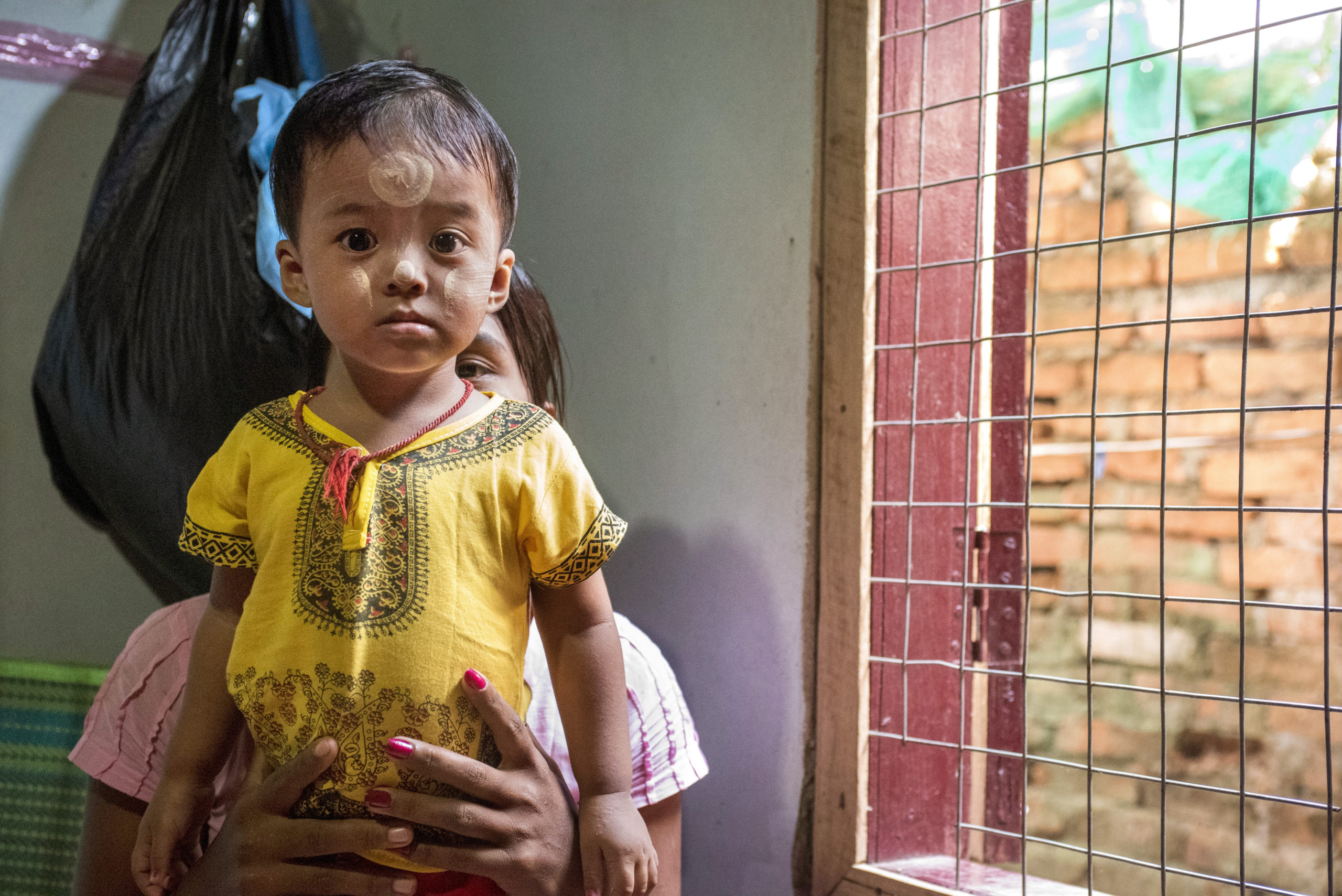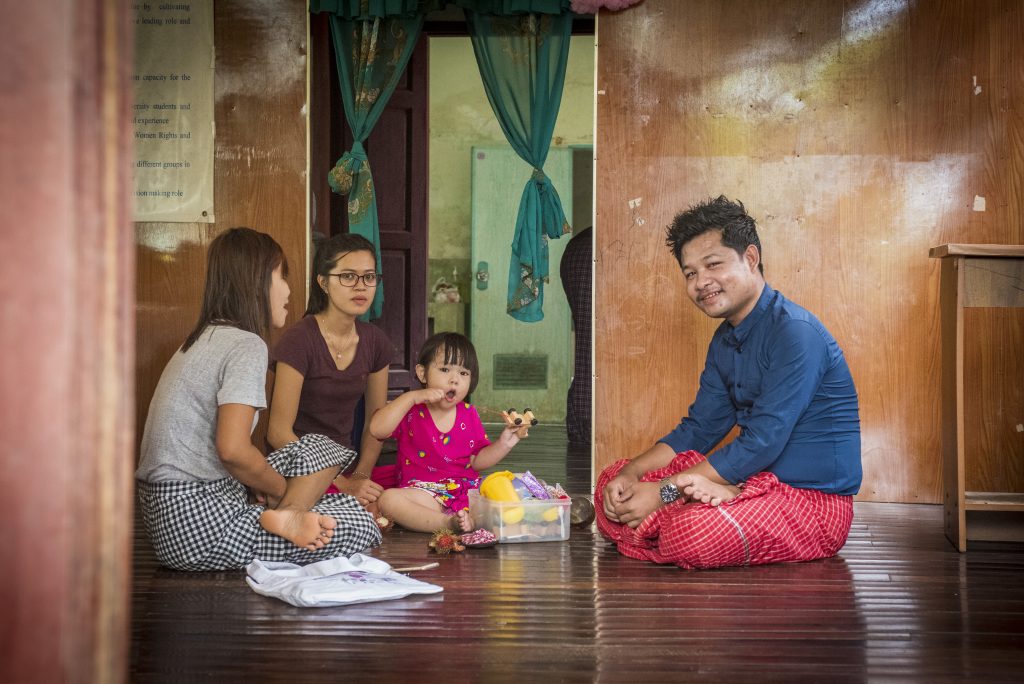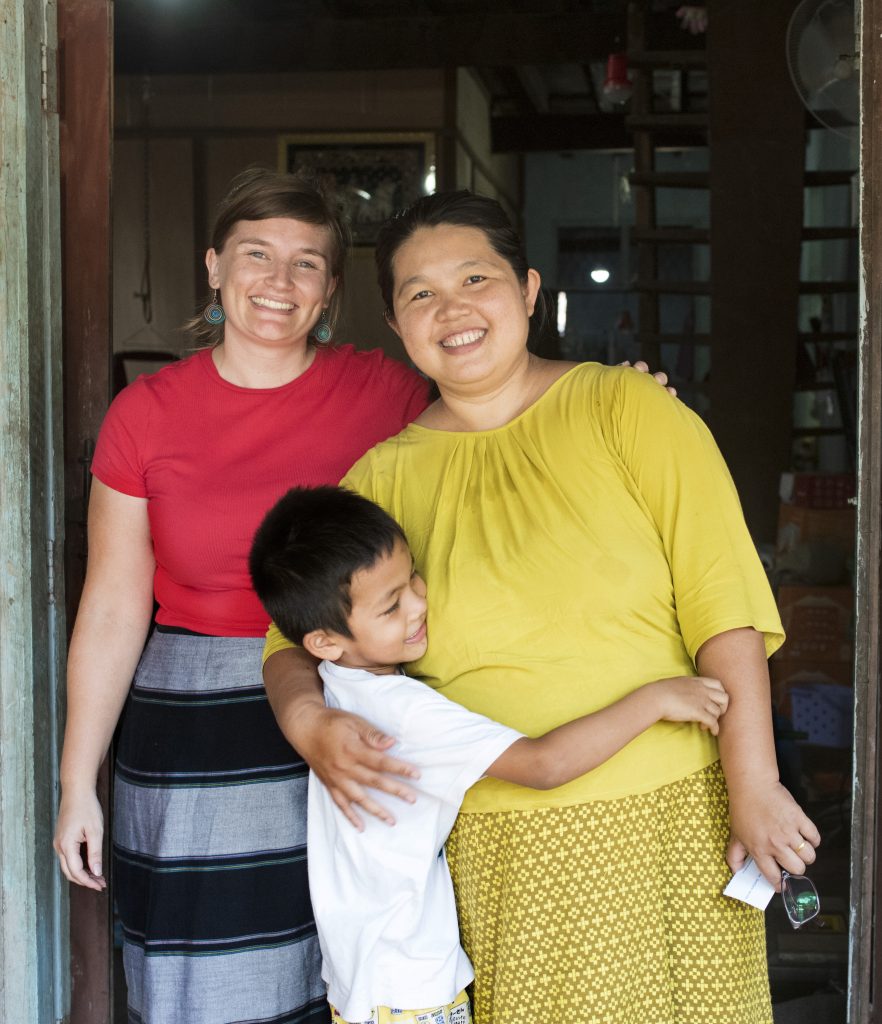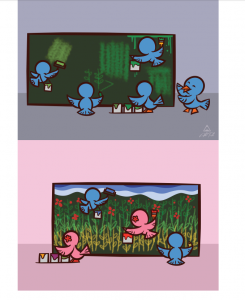Breaking tradition: How an Indigenous women’s organization is shaping the future of Myanmar
Story

A young mother sits on the floor of a small bedroom with her daughter in her lap. There is no bed, just a rolled up sleeping mat in the corner and a mosquito net suspended from the ceiling. It’s the only private room in the one-storey, three-room women’s shelter.
There are more than a dozen women, youth and children living in the safehouse, where May Chan* arrived two years ago. “A friend connected me to the organization. At the time, I didn’t have any place I could go,” says the 29-year-old. “So I just came here.”
The safehouse is one of dozens of programs operated by the Jeepyah Civil Society Development Organization (JCSDO) in Mon State. Jeepyah works with the Indigenous Mon population, a marginalized group living mostly in southeastern Myanmar.

Jeepyah employees discuss the importance of women’s rights. Photos by Brian Atkinson.
Ma Cherry, Jeepyah’s Founder and Director of Women Empowerment and Child Rights, opened the women’s shelter after field interviews repeatedly turned up cases of domestic and sexual violence and the sexual assault of children.
Women in rural Mon communities have little access to information about their rights and options. The cost to access the legal system is out of reach for most. And when the rare report of gender-based violence is made, it often goes ignored.
Even today, May Chan has difficulty talking about what led her to the safehouse. Other girls and women, some as young as 14, are survivors of human trafficking and sexual assault. A young transgender man is living at the shelter after escaping an arranged marriage and abusive living situation.
The Jeepyah organization offers survivors safety, shelter, access to legal counselling and support with navigating the court system. Ma Cherry estimates that more than 100 women, youth and children have come through the doors since the safehouse opened two years ago.
“We still have a need for basic rights for women and children. We have a lot of gender discrimination deeply embedded in our culture,” she says. “The tradition is your family problems are your business and not to intervene. We’re breaking that tradition.”
The Mon word jeepyah translates to “leading the way by example,” and that’s exactly what JCSDO is doing. Founded in 2012, Jeepyah works to strengthen understanding about gender equality, democracy and rule of law; to build skills and knowledge among youth through access to education and training; and to empower women to understand and advocate for their rights by increasing leadership opportunities and supporting survivors of gender-based violence.
“Women feel they can’t participate in leadership and decision-making roles—they believe they are second-class people,” says Ma Cherry. “To solve these problems, we need representation by women. We need to empower them to feel more confident and educate them on their rights.”

Mary Thompson (left) and Ma Cherry have been instrumental in launching a sexual and reproductive health hotline.
Cuso volunteer Mary Thompson is championing this effort. Working with Jeepyah as an Organizational Development Advisor for two years, she’s been instrumental in securing new funding partnerships for community outreach initiatives.
One of those projects includes piloting a sexual and reproductive health hotline. Jeepyah staff will be able to share information about contraception, safe sex and abusive relationships without upsetting conservative communities.
“It’s a really good way to reach youth. It’s a way to reach people who are far away,” says Mary. “In our safehouse, these women come from three hours north and four or five hours south. It’s the tip of the iceberg because they are the ones who come forward. Others keep it secret because they don’t know what to do or how to get justice. This is why we need this hotline.”
The 31-year-old from Bayfield, Ont. is passionate about gender justice work. With an election planned for 2020, she and Ma Cherry have drafted a call to action for political candidates. Jeepyah will track which candidates commit to championing gender equality and the rights of women and children, and those who ignore the request.
“They’re not separate issues. They’re very, very intertwined. In order to help end gender-based violence, there has to be more women leaders and more leaders tackling women’s rights,” says Mary.
The barriers women face when entering politics—or any workplace—are numerous. More than 30 women members of parliament in Mon and Karen states and Tanintharyi Region shared personal anecdotes about the hurdles they had to overcome to even get a foot in the door, and those they continue to face. Mary then worked with a local artist who took their stories and turned them into art.
Jeepyah published the drawings, along with Mon, Burmese and English translations, in a book and hosted a gallery-style viewing and launch party. “People were really, really excited to see them and engage with them,” Mary says. “The idea was to take these difficult concepts and turn them into something that any person, even if they’re not really able to read or write, can look at and understand.”
In one of the drawings, a group of blue birds can be seen painting a mural with the same colour green. In the second panel, blue and pink birds are painting a mural using different colours and techniques. The message is simple: including women’s voices creates fuller conversations and offers diverse perspectives.
“When women are empowered, when they are educated, when they are in leadership, they can help us build a more peaceful, developed and sustained democratic society for all people,” says Ma Cherry. “This is our future. Women are the key.”
*Name has been changed
